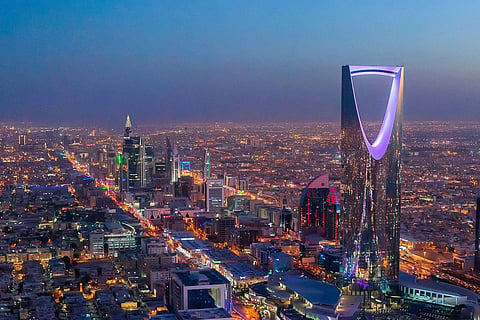

Founder and Co-Chairman of the Canadian Ivanhoe Mines Company Robert Friedland, a renowned global expert in the mining sector, praised the steps taken by the Kingdom of Saudi Arabia to develop the investment environment for the mining sector, expecting that Saudi Arabia will, by the next decade, be a leading country in the mining sector alongside China.
Speaking at the Bank of America Commodities Conference, he said that these regulatory and legislative steps and measures would attract major investments to the mining sector, noting that the Kingdom aims to exploit its mining resources at the maximum possible value by increasing value chains, in addition to securing 50% of its electricity needs from renewable energy, which consumes minerals equivalent to 4 to 6 times what is consumed by conventional energy.
He stressed that the mining industry is an essential pillar of the world's transition to a more sustainable future, as emerging mining areas play a vital role in this transformation, which helps ensure the security and diversity of mineral supplies.
Robert Friedland, who was one of the keynote speakers at the International Mining Conference held in Riyadh last January, explained that the Kingdom is rich in various types of minerals, including those used in the manufacture of technologies necessary to build a sustainable future, which are in great demand, including copper, phosphate and ore Iron and many rare earth metals.
He pointed out that the Arabian Shield region enjoys limitless mining capabilities, including lithium, copper, gold and other unexplored minerals, in addition to the region's low-cost energy, solid infrastructure, and proximity to global commercial markets.
He noted that in the coming years there will be a significant increase in the demand for copper, which is used in the electric car industry, and that copper supplies have become extremely important for generating the necessary electricity for the global economy, stressing that copper mining and the provision of its supplies is a national security issue and a fundamental factor in achieving our economic goals.
Friedland explained that by 2030 the world will need 20 million charging points for electric cars, which means an increase in copper demand by 250%, and that by 2040 electric cars will require an additional 3.7 million tons of copper annually.
He explained that copper is a major component of green infrastructure, and is involved in the construction of networks and wind turbines, saying, "We need eight new mines, such as the Kamoa Kakula mine in the Democratic Republic of Congo, to fill the projected copper supply gap, which is estimated at 9 million tons by 2030."
He stressed that mining companies must become effective in exercising their development roles, and governments should support the mining industry to achieve a successful transition to clean energy, noting that the world has not yet realized the extent of the disruption that the replacement of fossil fuels with clean energy may cause.
